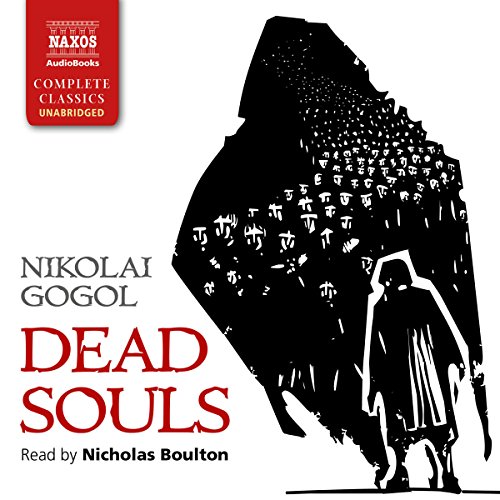Note: If you wish to receive, via e-mail, (1) my weekly newsletter or (2) daily copies of these posts, notify me at [email protected] and indicate which you would like. I promise not to share your e-mail address with anyone. To unsubscribe, send me a follow-up email.
Wednesday
Sometimes, when one is reading two books at the same time, the works talk to each other. That’s been happening as I read Daniel Genis’s Sentence: Ten Years and a Thousand Books in Prison while listening to James Baldwin’s If Beale Street Could Talk on Libby. Genis’s grim account of prison life makes me realize what Fonny Hunt, locked up on a bogus rape charge by a corrupt cop, must be going through.
Today’s post, however, continues the series I’ve been writing on how Genis used literature to cope with prison life. As I noted yesterday, there’s one dramatic instance where two novels, Nikolai Gogol’s Dead Souls and Thomas Mann’s Doctor Faustus, got Genis into more trouble.
Midway through Sentence, Genis casually mentions that he once was confined to solitary—or rather, solitary with one other, a schizophrenic—for selling “dead souls.” I wondered whether this was some kind of prison slang since I only associate the phrase with Gogol’s novel, where a conman buys dead serfs from landowners so that the latter won’t have to pay taxes on them. (Taxes are based on the census, conducted when these serfs would have been still alive.) In the novel, Chichikov plans to take out a large loan against these dead souls, which he will then pocket.
As it turns out, the Russian-American Genis is in fact drawing partly on Gogol, partly on Mann’s version of the Faustus story, which also involves a soul transfer. Genis’s soul-selling was partly a joke, partly a practical measure to keep his fellow prisoners from bleeding him dry.
Genis, who is NYU educated and solidly middle class, was in the enviable position of having parents who sent him $100 a month. The other prisoners knew this, however, and Genis became besieged by requests, some of them accompanied by threats. At that point he thought of Adrian Leverkühn, who in Mann’s novel gets “twenty-four years of genius in exchange for the gift of syphilitic creativity, after which he was punished with madness.” In other words, he sells his soul for brilliance.
Genis found himself relating to Leverkühn:
For my soul-sucking criminal compromises with my own morals, I got half the time Leverkühn did [and] probably none of the genius…In any case, as the disease that Leverkühn deliberately contracted ate away at his mind, the composer embraced the Mephistophelian figure with whom he began to interact, the metaphorical buyer of his souls. Mann wrote the character with aplomb. The devilish is always appealing to those of a bohemian bent, and even though I was but a half-assed Rimbaud locked away in a place of simple values and harsh rules, my sense of play never left me.
I wrote in yesterday’s post about how this sense of play was vital to Genis and how he turned to literature to bolster it. In this case, however, he got into trouble when he decided to exchange gifts for his fellow inmates’ souls. He typed up contracts very professionally on his typewriter, and the ploy worked since, once having sold their (one) soul for something, the prisoners couldn’t ask for more favors. The the prison administration stepped in:
My skill on the typewriter was part of my undoing: my contract for souls just looked too real in the eyes of the cops, who were horrified by what they had discovered. The document simply stated that in exchange for a desired item, which was a cup of coffee in three of the five cases, the seller would transfer ownership of his immortal soul to the buyer, me. It took me only ten minutes to type up these one-page contracts. I used the legal jargon that was inescapable in prison and added in little bits of sarcasm to amuse myself.
All probably would have been well had not the contracts caught the attention of a fire-and-brimstone evangelical cop, who made sure that Genis was put away. As Genis observes, “Josef K. would have had an easier time getting acquitted from that kangaroo court.” I note as an aside that, of the five books that Genis was initially allowed to take with him, one was the work I would take if I were in similar straits: Shakespeare’s collected plays:
I decided to use the time to read the lesser-loved plays of Shakespeare, as well as a thick volume of science fiction for when I had no attention span. I consumed fifteen plays in fifteen days, enjoying Coriolanus and All’s Well That Ends Well, works I probably would never have read without having absolutely nothing else to do. I also did push-ups. Clips of a hundred between every scene at first, then after every act when I found the pace was unsustainable.
Ninety days in solitary—or in solitude with “a bunky”—was bad enough, but Genis also almost lost three months of “good time,” which is to say time he had built up for good behavior. Fortunately, this time he didn’t run up against any hardcore fundamentalists:
Luckily, when the day came for me to explain myself to a Time Allowance Committee in another prison, it happened to be Halloween, and the group’s members found the story humorous enough to ignore the penalty. I did not try to blame Thomas Mann or Nikolai Gogol for my misconduct, and went home on time.
Another work that Genis read in those final 90 days was Proust’s In Search of Lost Time, read while his schizophrenic roommate “raged on the cot beneath me.” Tomorrow I’ll report on the profound impact Proust’s novel had on him.
